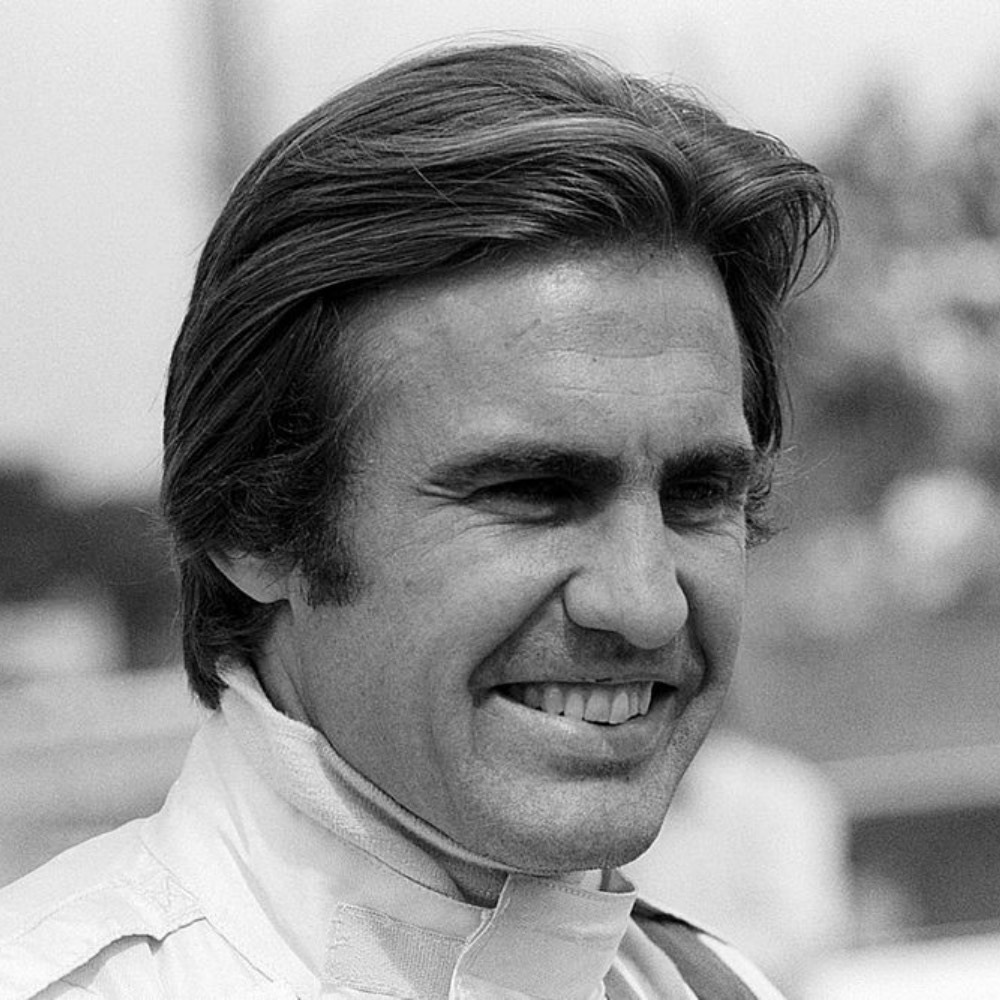
Carlos Reutemann
Career Statistics
Biography
Carlos Alberto "Lole" Reutemann (12 April 1942 - 7 July 2021) was an Argentine racing driver and politician who competed in Formula One from 1972 to 1982, widely regarded as one of the sport's most enigmatic talents whose championship near-miss in 1981 remains one of F1's enduring mysteries. Born in Santa Fe, Argentina, into a farming family of Swiss-German, Argentine, and Italian heritage, Reutemann didn't begin racing until the relatively late age of 23 in 1965. His natural talent quickly became apparent as he dominated Argentine national racing, catching the attention of international teams despite having never competed outside South America. Brabham team owner Bernie Ecclestone took a chance on the unknown Argentine, signing him for the 1972 season alongside Graham Hill.
Reutemann's debut at the 1972 Argentine Grand Prix at Buenos Aires proved sensational—he qualified his Brabham BT34 on pole position, a feat previously achieved on debut only by Mario Andretti, announcing his arrival as a world-class talent. Over five seasons with Brabham (1972-1976), Reutemann developed into a consistent front-runner, taking his maiden victory at the 1974 South African Grand Prix and adding wins in Austria (1974), Germany (1975), and the United States (1975), establishing himself as one of the fastest drivers of the mid-1970s. For 1976, Enzo Ferrari came calling, and Reutemann joined Scuderia Ferrari to partner Niki Lauda. His three-year Ferrari tenure (1976-1978) produced mixed results, with his best season coming in 1978 when he won four races (Brazil, USA West, Britain, and USA East) and finished third in the championship.
However, tensions with the team and perceived political maneuvering led to his departure, and he moved to Lotus for a disappointing 1979 season with just one podium finish. Reutemann's career renaissance came when he joined Williams for 1980, partnering Alan Jones. In his first season, he won the Monaco Grand Prix and finished third in the championship, establishing the foundation for his greatest season yet. The 1981 campaign saw Reutemann drive what many considered his finest season, taking victories in Brazil and Belgium while consistently scoring points.
He led the championship standings for most of the year and arrived at the final race in Las Vegas with the title within his grasp—needing only to finish ahead of Brabham's Nelson Piquet, who trailed by just one point. What transpired at Caesar's Palace remains one of Formula One's most debated mysteries. Starting from pole position with the championship advantage, Reutemann suffered a disastrous start and quickly fell down the order. His race was characterized by seemingly disinterested driving hampered by gearbox and handling issues, and when Piquet passed him on lap 17, Reutemann made little effort to respond.
He eventually finished a distant eighth while Piquet took fifth, losing the World Championship by a single point in what remains one of the sport's greatest collapses. Reutemann never offered a satisfactory explanation for his startling fall from grace, with speculation ranging from psychological pressure to mechanical issues to deliberate team interference. The mystery remained unresolved until his death. Reutemann contested only two races in 1982—finishing runner-up in South Africa before retiring in Brazil—but the Falklands War between Britain and Argentina made his position within the British Williams team untenable.
At Long Beach, he abruptly quit Formula One at age 40, walking away with 12 victories, 45 podiums, and 6 pole positions, but without the world title many believed he deserved. After retirement, Reutemann entered politics and enjoyed remarkable success, serving as Governor of Santa Fe Province from 1999 to 2003 and as a National Senator for Santa Fe from 2003 until his death in 2021, declining multiple opportunities to run for President of Argentina. Carlos Reutemann passed away on 7 July 2021 at age 79 in Santa Fe after a prolonged illness. He remains one of Argentina's greatest sporting heroes and one of Formula One's most talented drivers never to win the World Championship, forever linked to the haunting question of what might have been in Las Vegas, 1981.